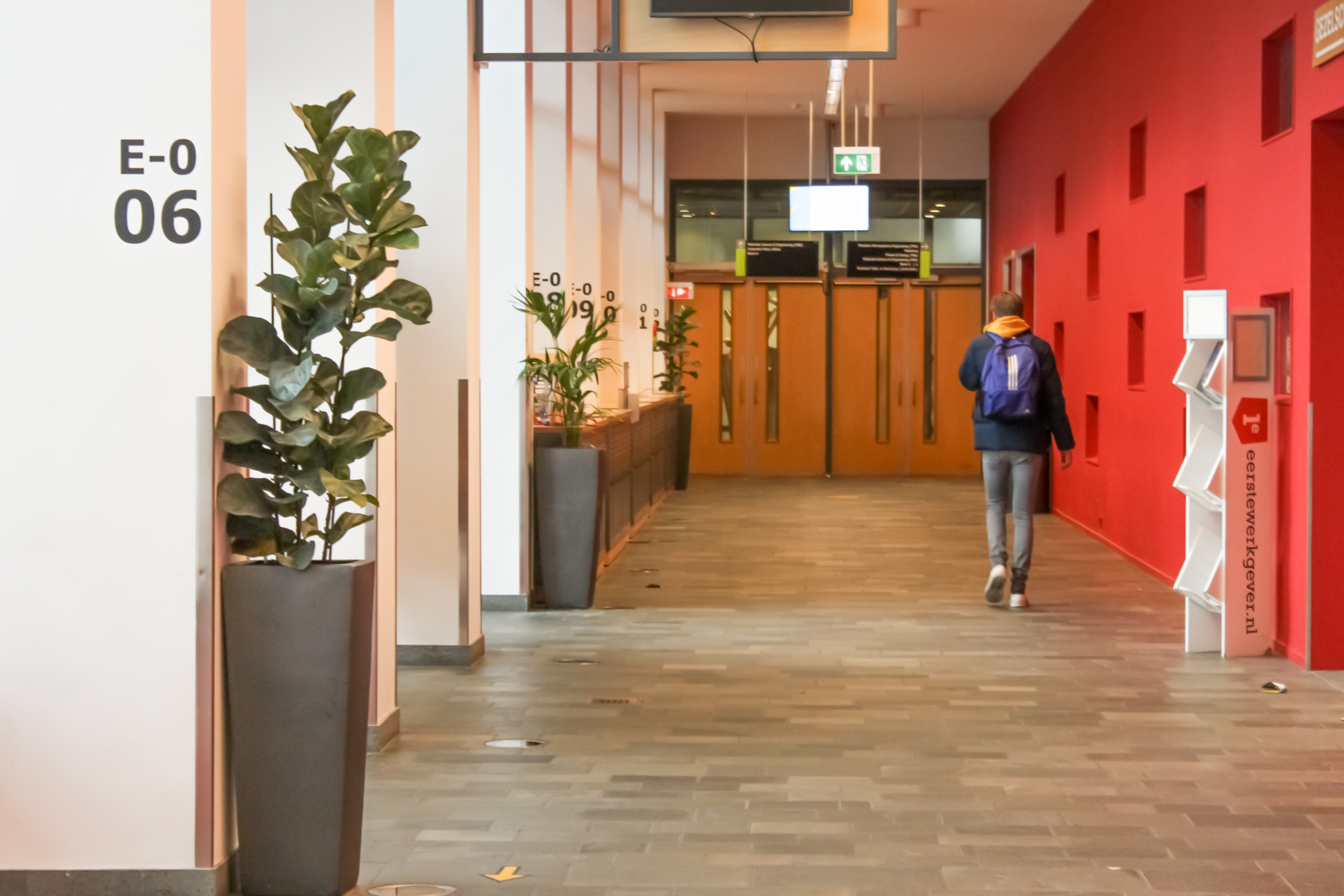The government will spend billions of euros to help pull the educational sector through the corona crisis. Two academic researchers in education have voiced their criticism.
The scope of study programme delays suffered by students is still ‘completely unclear’. (Photo: Dalia Madi)
With its support package of 8.5 billion euros, the government hopes to cushion the blows in the educational sector caused by the coronavirus crisis. At the request of Parliament, Professors Tamara van Gog (Utrecht University) and Roel Bosker (University of Groningen) examined the measures using a so-called ‘scientific assessment’.
Confusion
The academics looked at many different criteria — from the accessibility of the information to the plan’s effectiveness. They used three icons to indicate their judgment of each measure: a green checkmark (pass), a yellow triangle (review) and a red X (re-do).
‘The two academics suggest using an individual approach’
The tally? Five yellow triangles and four red Xs. Van Gog and Bosker believe the goals of the support measures have not been clearly formulated. What exactly does the government want to achieve? And for which groups of pupils and students? Obviously, something must be done for the educational sector. But the plans as they stand now on paper are still fairly confusing, Bosker said during a roundtable discussion with Parliament’s educational spokespeople.
The academics put the spotlight on primary and secondary education, but did have a few things to say about higher education too. They think, for example, that the scope of study programme delays suffered by students is still completely unclear. A thorough nationwide analysis has not been conducted, instead an average study delay of six months was “simply” assumed.
Another stated goal of the programme of measures is relieving some of the social and emotional consequences of the coronavirus crisis. But will all students receive extra support, Van Gog and Bosker ask, or only those who have developed psychological problems because of the crisis?
Vouchers
Moreover, they fear that these compensation measures fail to target an important group of students. “We’re talking here about students who will be leaving their programmes this academic year, whether they are graduating or not, but who have not had the opportunities that they normally would have had”, Van Gog said in Parliament.
The reduction of tuition fees by 50 percent for the coming academic year won’t help these students at all. The two academics therefore suggest using an “individual approach” as an alternative, for example by offering financial compensation or vouchers for extra schooling.
It’s not as if these are recommendations outgoing Education Minister Van Engelshoven is eager to hear. She’s already had to explain several times in the House of Representatives why some graduating students will not be receiving “coronavirus compensation” this year.
Clear goals
And what about the support for researchers? Van Gog and Bosker are positive about the government’s allocation of funding to give extensions to researchers on temporary contracts who have suffered set-backs. But the research of lecturers and senior lecturers with permanent contracts has also suffered under the crisis, they warn, and this group has as yet been granted no compensation scheme.
Financial accountability should also be more clearly anchored in the programme, in the opinion of the two professors. They see the proposed policy for higher education as open-ended and lacking in detail. And that will ultimately have an impact on how the programme will be evaluated. Without clear goals you don’t know what you should be aiming at, Bosker said. “In two-and-a-half years we still won’t know whether we have reached our goals.”
HOP, Evelien Flink
Translation: Taalcentrum-VU
Do you have a question or comment about this article?
redactie@hogeronderwijspersbureau.nl


Comments are closed.